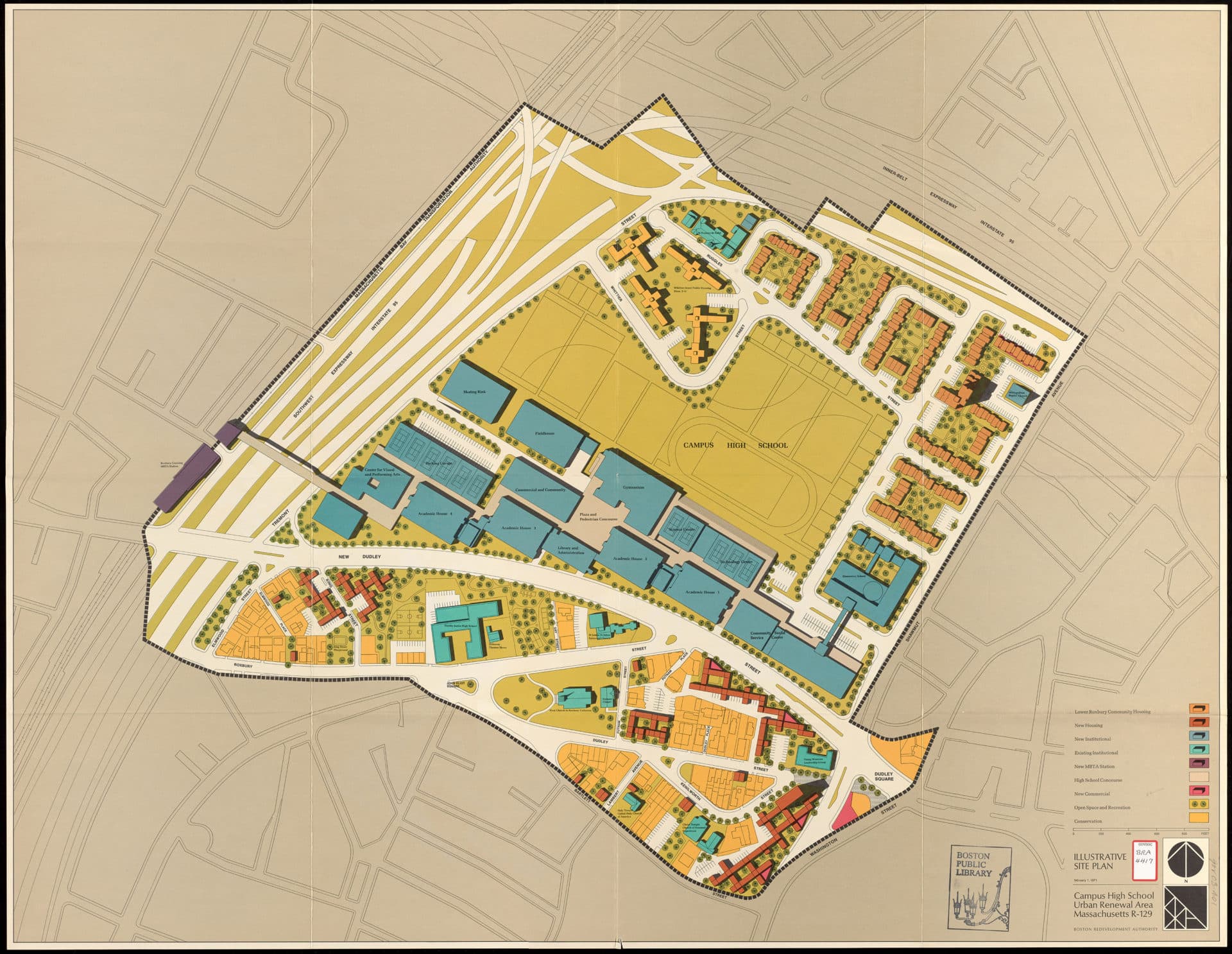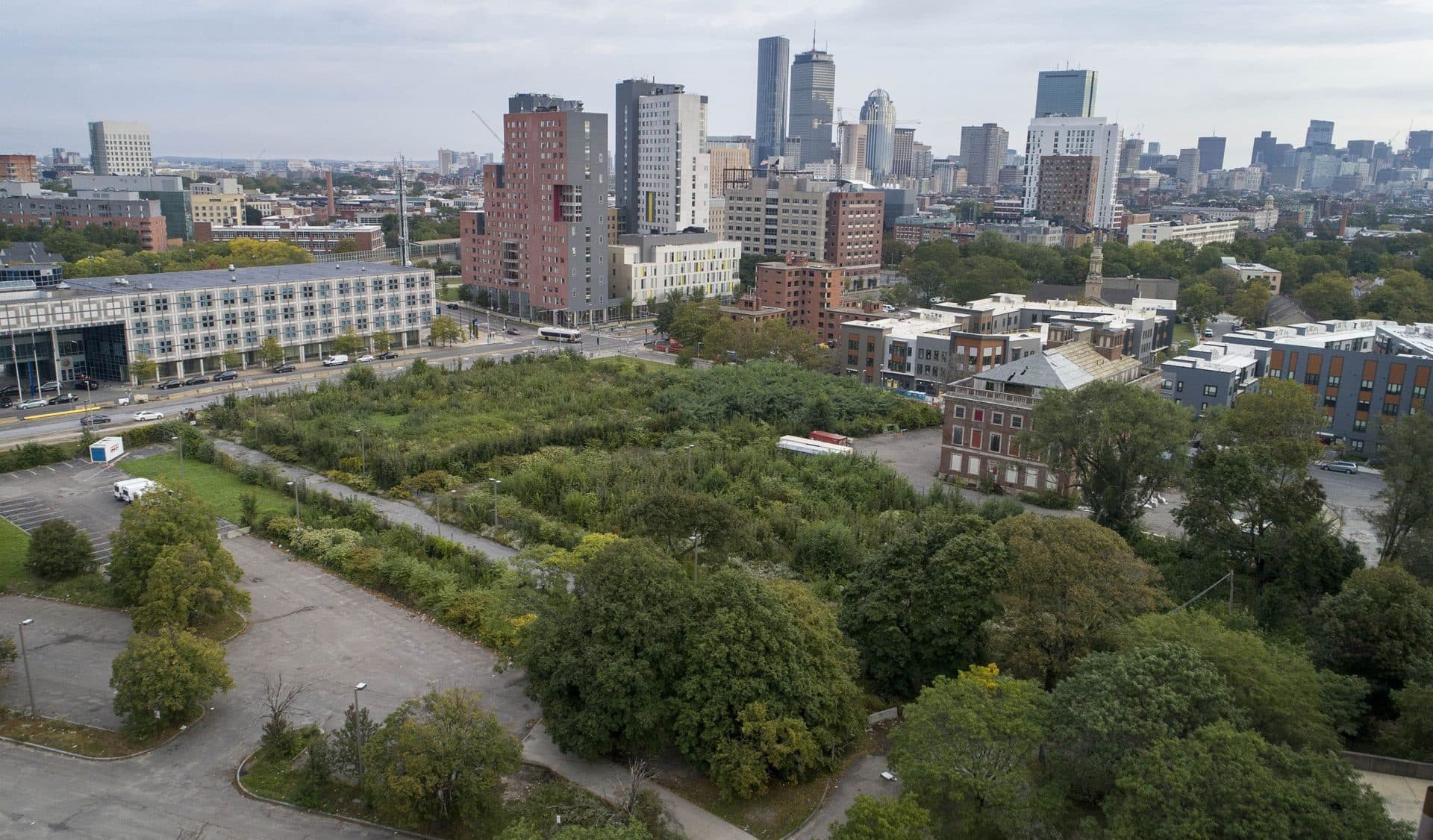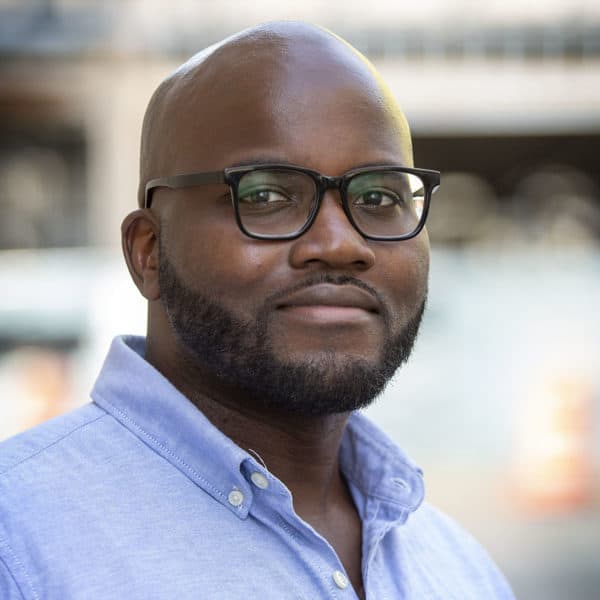Advertisement
Vacant for decades, a key parcel in Roxbury may finally come back to life
Resume
The land at Tremont and Whittier Streets in Roxbury has been mostly vacant longer than Armani White has been alive. He’s a lifelong Roxbury resident and recently turned 30. It was kind of a big deal for him.
“I hear the 30s are like your 20s, but with money,” he said. “So I'm excited.”
White is an organizer with the group Reclaim Roxbury, and he wants to see this property, nearly eight acres in total, become something new, something that can lift up a historically Black part of the city.
The land was originally cleared as part of an urban renewal project, which was never completed. Now, it is one of the largest pieces of land owned by the Boston Planning and Development Agency.
"We're looking at the next phase in Roxbury's development," White said. "It's going to be either for the better or for the worse of the people who have lived here historically."
Neighbors and city officials refer to the parcel as P3. Right now, it is a small jungle of weeds and grass with an empty building on one side, and a parking lot on the other.

P3 was once part of a thriving commercial corridor, not too far from Oakburn Avenue, where 68-year-old Walter Clark lived when he was a kid, before the city took over the area by eminent domain.
“This was a neighborhood, people knew each other on different streets. Families knew each other,” Clark explained.
Clark said his family stayed as long as they could, but eventually everyone was forced to go.
“There wasn’t anything that could be done about this,” he said. “[The project] was well underway.”
After clearing the area, the city built schools, athletic fields and some housing, but other parts of the project were left unrealized. Plans for a major highway expansion, for example, were halted amid opposition from the community. And for decades, the remaining land sat mostly vacant.
In the early '90s, developers proposed a shopping mall for the site, but the financing fell through. A more recent plan for housing, office and retail space, and even a BJ’s Wholesale Club, also fell through.
After so many failed development proposals, the Boston Globe once called the parcel cursed.
But White sees it differently.
“It's totally not a curse,” White said. “It's the inability of government to successfully do its job of developing a parcel of land in a way that helps local residents.”
Now, the city is trying yet again to develop the property.
“The story behind P3 is robust,” said Muge Undemir, a planning official with the city, who is part of the new effort. “The history is robust, but also the opportunity is really vast.”

The city collaborated with residents to craft new guidelines for developers. The priorities they highlighted include affordable homes, well-paying jobs and space for locally-owned businesses.
The city also said it will also give extra consideration to proposals that include companies owned by women and people of color in the development and operation of the property.
“We're really trying to make sure that we do this right, because the community deserves it, and it's just time,” said Undemir.
Redeveloping this parcel and several others nearby could bring new opportunities to the neighborhood.
City data show the median income in Roxbury is less than half the median income city-wide, nearly 80% of households are renters, and roughly one in three residents lives below the poverty line.
Angela Williams-Mitchell, a Roxbury resident and chair of the Boston Jobs Coalition, credited the city for reaching out to the community as part of the planning process. But she pointed out that the city hasn't always followed through on past promises to develop land in ways that benefit residents and prioritize opportunities for people of color.
She plans to make sure Roxbury residents stay involved in this project.
“Oftentimes things are put in black and white, but that's just it,” she said. “There is no accountability. There is no monitoring, no follow up to make sure that these things are actually happening.”
This segment aired on October 27, 2021.
